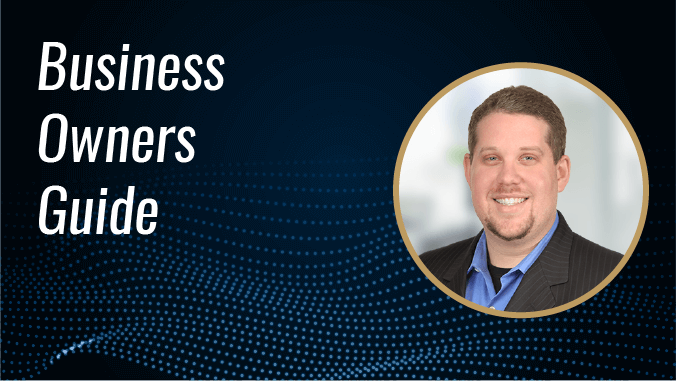Operating and Managing Your Business to Minimize Your Tax Bill
- Published
- Jan 6, 2022
- Share
Accurate and thorough recordkeeping can save your business a lot of time and money. Discover the key areas a knowledgeable tax professional can advise you on in this new tax environment.
Transcript
Josh oberndorf: Once your business has been established, you now have to go about operating and managing your business. A huge concern is doing so while also making the best decisions for minimizing your tax bill. That’s why it’s essential to have a game plan from the onset.
With the passage of the Tax Cuts and Jobs Act, commonly referred to as the TCJA, at the end 2017, business owners are now able to employ new strategies and take advantage of new opportunities for tax savings.
While the following is certainly not all encompassing, it covers key areas that business owners should be considering when operating their businesses in this new tax environment.
The first place a business owner must start is with the foundation, and that entails proper record keeping. Having an accounting and record keeping system in place will ensure that underutilized deductions are not missed and also that the books and records are ready when a tax filing is needed. This alone can save a business a lot of money at tax time.
One of the biggest expenses and tax deductions for many businesses is the cost of labor. Knowing the difference between an employee and an independent contractor has been and will remain a big issue with most state labor departments. Working with a payroll service or tax advisor will save headaches and money in the long-run.
Along with having employees comes the consideration of employee benefits. These benefits may be for both the employees and business owners alike. It’s very important to understand the differences, costs, and benefits of plans such as the HSA, FSA, HRA, and Depended Care FSA. Having the right plan in place may help attract and retain the right talent while giving everyone access to big tax savings.
When it comes to retirement plans, many business owners are only familiar with the 401(k) or IRA. However, there are many other plans and combinations of plans that could be a better fit depending on the business situation. There could be enormous tax savings for a business, the owners, and the employees if the correct planning and strategy is implemented.
The next key consideration is paying estimated taxes by the business owners, especially if the business is a pass-through entity. This may be a new concept to those who have been employees of other businesses in the past and had taxes withheld and remitted to the tax authorities on their behalf. Additionally, depending on the type of business and where it is located, the business may also have its own estimated taxes to pay over the course of the year.
Now, moving forward, it’s important for business owners to understand the potential tax savings from the new Qualified Business Income Deduction which came into being under the TCJA. There are some complexities and limitations related to this new section of the tax code, so working with a tax advisor is critical. While C-Corporations have their new 21% tax rate, in the right situation, and with proper planning, owners of other types of businesses could get a deduction of up to 20% off their bottom line.
Many businesses are performing services, selling products, and have physical locations in multiple states. First off, understanding the different tax rates and tax obligations in different states is very important. Second, careful consideration must be taken to make sure all state and local taxes, including sales and use taxes, are being collected and remitted to the proper jurisdictions. This is especially important since the Wayfair Decision by the US Supreme Court in 2018.
Next, under the TCJA, a cap was put in place on the deduction of state taxes when itemizing deductions on one’s individual tax return. However, several states have now enacted pass-through entity level taxes intended to be a workaround of this limitation. This is something that should not be overlooked.
Lastly, if your business has an international presence, proper structuring is very important and seeking the advice of a knowledgeable advisor in this area is paramount.
Business Owner's Guide Video Series
People starting a business for the first time often don't know where to begin. EisnerAmper has developed a series titled Business Owner's Guide: The Cycle from Start-up to Exit.
What's on Your Mind?
Start a conversation with Joshua
Receive the latest business insights, analysis, and perspectives from EisnerAmper professionals.



